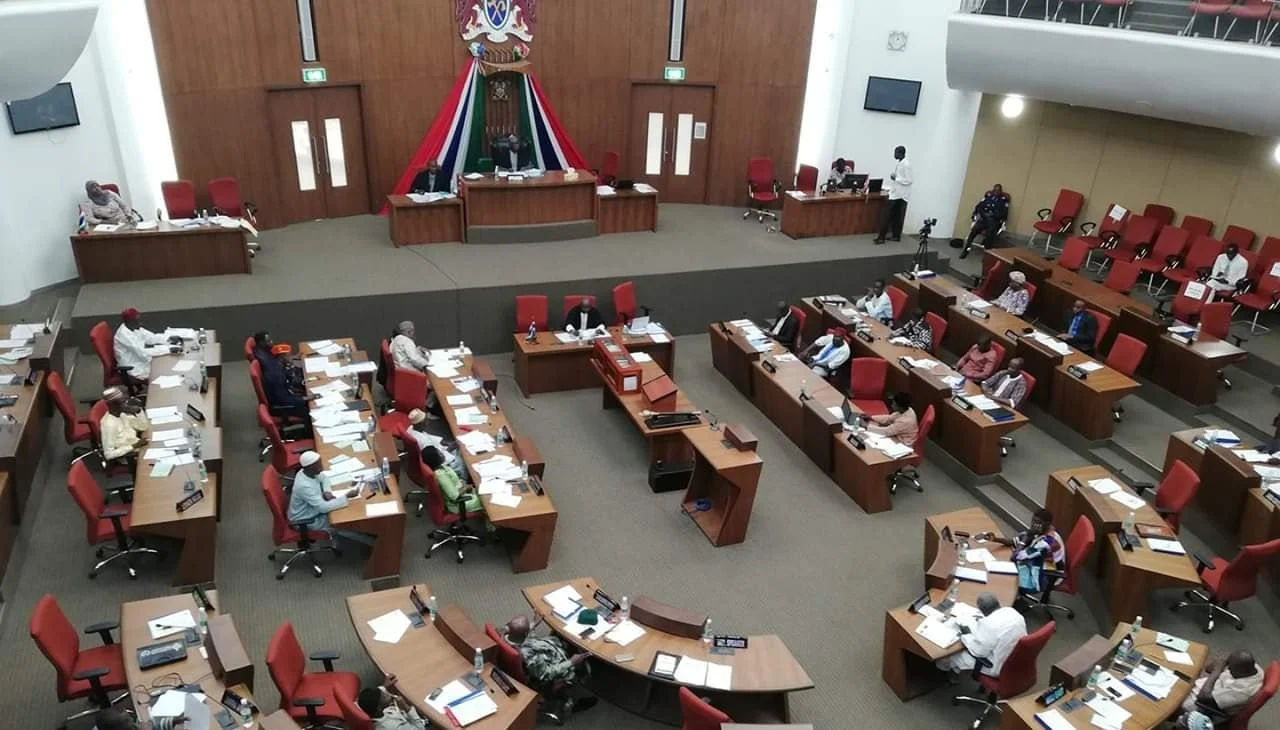Introduction
Since the ousting of former President Yahya Jammeh on 1 December 2016, the protection of human rights has taken a center stage in The Gambia. The preamble to the Universal Declaration of Human Rights (1948) states that, the recognition of the inherent dignity and of the equal inalienable rights of all members of the human family is the foundation of freedom, justice and peace in the world. The preamble to the African Charter on Human and People’s Rights (1986) expresses the conviction of African States to promote and protect human and people’s rights and freedoms taking into account the important African values. The 1997 Constitution of The Gambia does not only resolve for good governance and a just, secure, and prosperous society, it also makes provisions for a plethora of rights with mechanisms for their enforcement. The organ of government that bears a primary responsibility in the protection and enforcement of these rights is the Judiciary.
In this article, an attempt is made to examine how effective the Gambian Judiciary has been in the protection of human rights and sustenance of democracy in The Gambia. The paper also examines how well the Judiciary has impacted on the country’s nascent democracy in the performance of its role as well as its traditional duty of checking the excesses of the other two organs of government. This is because ‘’rights are among the essential building blocks of a democratic process of government’’.[1]
While there is widespread acceptance of the importance of human rights in a democratic society, there is considerable confusion as to their precise nature and role in law. The question of what is meant by right is itself controversial and the subject of intense jurisprudential debate. The problem of enforcement and sanctions with regards to human rights is another issue which can affect the characterisation of the phenomenon. According to the United Nations, human rights are ‘’those rights which are inherent in our nature and without which we cannot function as human beings.’’[2] Thus, human rights underpin the aspiration of a world in which every man, woman, and child lives free from hunger and protected from oppression, violence, and discrimination.
Understanding the nature of the ‘’right’’ involved can help clarify one’s consideration of the degree of protection available, the nature of limitation or exceptions, the priorities to be afforded to various rights and delicate balancing of competing interests. The answers to these questions will evolve overtime through rulings, interpretations, judgments and in some cases pragmatic compromises. But how those answers emerge will be largely influenced, if not driven by the legal and moral justifications of the human rights in issue.
Entrenchment of Human Rights
The question of entrenchment of human rights in the constitution is as controversial as the subject matter itself. Some scholars believe that formal entrenchment of human rights in the constitution would enhance their enjoyment and enforcement, others think otherwise. For instance, Professor Stanley de Smith and Rodney Brazier[3], opined that entrenchment of human rights obstruct governments from doing what they want to do. They are therefore said to be undemocratic because they obstruct fulfilment of the will of the people as expressed by their elected representatives. They lead to ‘’government by judges’’ if the constitution is rigid. The duo further argues that, justifiable guarantees and prohibitions induce delay and uncertainty because the executive will not be sure of what they are entitled to until the judges have told them. This, they claim, would engender a litigious spirit.[4]
On the other hand, Professor JAG Griffith doubts whether judges are qualified to protect human rights. According to him, judges are traditionally selected from a cohesive and limited socio-economic class. They are predominantly male middle or upper class and middle aged. Judges by virtue of their training, it is argued from this perspective, are not suited to the task of protecting the rights of the poor, socially and economically disadvantaged, or members of groups and association in society whose outlook and background is so different from that of the judges.[5]
While admitting the soundness and validity of some of the views expressed above, I respectfully submit that, it still seems better to entrench human rights including economic and social rights in the constitution as these justiciable guarantees and prohibitions will not only ensure certainty and predictability but would also enhance the promotion and protection of human rights by creating a constitutional benchmark upon which rights can be assessed.
The fundamental rights guaranteed in Chapter IV of the 1997 Constitution include, the right to life, rights to personal liberty, right to fair hearing, protection from slavery and forced labour, protection from inhuman treatment, right to freedom of thought, conscience and religion, right to freedom of expression and the press, right to peaceful assembly and association, right to freedom from discrimination just to name but a few. In addition to the copious provisions for fundamental human rights in the 1997 Constitution, it has also provided the machinery for their enforcement with the Judiciary being given a pride of place. However, it is important to highlight that the above chapter guarantees limited socio-economic rights.
The Judiciary and Enforcement of Fundamental Rights
Section 37 (1) of the 1997 Constitution specifically vests the Judiciary with the authority to enforce fundamental human rights. The section provides that any person who alleges that any of the provisions of section 18 to 33 or section 36 (5) of this Chapter (Chapter IV Protection of Fundamental Rights and Freedoms) has been, is being or is likely to be contravened in relation to himself or herself by any person he or she may apply to the High Court for redress. Aside from an application brought pursuant to section 37 (2), only a person having locus standi can institute an action for the enforcement of any of the provisions contained in Chapter IV.
The doctrine of locus standi under the 1997 Constitution and the hitherto stringent interpretation by the courts have greatly hindered the accessibility of the Gambian courts to the citizens and persons living in The Gambia by precluding them from bringing action to enforce the provisions mentioned above unless the alleged contravention is in relation to them. A person who is not interested in the subject matter has no locus standi to invoke the jurisdiction of the court.
Section 34 of the 2020 Draft Constitution has now liberalized the above rule of locus standi. The said section now permits the ‘’public spirited’ person (s) to institute court proceedings claiming that a fundamental right or freedom in Chapter VI has been denied, violated or infringed, or threatened with contravention. Similarly, by subsection (3) thereof, the Chief Justice is empowered to make rules with respect to the practice and procedure of the court. Thus, the widening of the traditional rule of locus standi and the introduction of public interest litigation by section 34 of the 2020 Draft Constitution is a significant phase in the enforcement of human rights.
Restriction of Human Rights
Like what obtains under the provisions of other human rights instruments to which The Gambia is a party to, the fundamental rights and freedoms guaranteed under the 1997 Constitution are not absolute. Under certain circumstances, some of these rights could be restricted or limited for the general interest of the society and hence the need for restriction clauses. Under the 1997 Constitution, these clauses are of two types. While some restriction clauses are attached to specific rights, section 35 (2) of the 1997 Constitution contains omnibus restriction clause. It provides that nothing contained in or done under the authority of an Act of parliament shall be held to be inconsistent with or in contravention of sections 19 (protection of right to personal liberty), section 23 (privacy), section 24 (provision to secure protection of the law and fair play other than (5) to (8) thereof) or section 25 (freedom of speech, conscience, assembly, association and movement) of this Constitution to the extent that it is reasonably justifiable in the circumstances arising or existing during a period of public emergency for the purpose of dealing with the situation.
Sections 18 allows restriction on the right to life. Similarly section 25 (4) placed restrictions on the right to freedom of speech, conscience, assembly and association so far as the law imposes reasonable restrictions on the exercise of these rights and freedoms thereby conferred, which are necessary in a democratic society and are required in the interests of the sovereignty and integrity of The Gambia, national security, public order, decency or morality, or in relation to contempt of court. However, the constitution does not define what is meant by the expressions ‘’ public order, decency, or morality and what is reasonably justifiable in a democratic society.’’
The Supreme Court of The Gambia had occasion to deal with these phrases in the case of Ousainou Darboe & 19 Ors v. Inspector General of Police & 2 Ors [6] where the applicants invoked the original jurisdiction of the Supreme Court seeking inter alia, a declaration that section 5 of the Public Order Act which requires a permit from the IGP before anyone can exercise the right to freedom of assembly and demonstrate peaceably without arms as unconstitutional and a violation of section 25 of the Constitution which guarantees the above rights.
In its judgment, the Supreme Court unanimously held that the restrictions imposed on the grounds set out in section 25 (4) of the Constitution read in conjunction with section 5 of the Public Order Act were reasonably justifiable in a democratic society. The Court per his lordship Chief Justice Hassan B. Jallow, went further to state as follows;
‘’The right to assembly, as with other individual or collective rights, is usually exercise within the public space. As a result, its exercise by anyone may conflict with the exercise of the same right by others or with the exercise or enjoyment of other rights by other persons or with the needs for the maintenance of public order and security. Hence the need for some regulation or restrictions on the exercise of the right… The requirement of a licence from the Inspector General of Police for the holding of a public procession... to prevent a breach of the peace are reasonable limitations on the right to assembly and to free expression’’.[7]
Be that as it may, the apex Court in my considered view did not satisfactorily set out the standards for a lawful restriction that is in accordance with international human rights law, as the decision failed to provide any evidentiary or factual foundation for the assessment that prior approval for the enjoyment of the right to assemble and demonstrate peaceably is not unconstitutional. Moreover, the grounds permitting restrictions under section 25 (4) of the Constitution cited by the Court does not support its conclusion, because the Constitution did not envisage outright denial of the exercise of these rights.
While I agree with the Supreme Court that restrictions are necessary in the interest of public order, and the competing interest to secure the rights of others, the restrictions imposed by the Constitution are broadly crafted and therefore any part of the constitution which protects and entrenches fundamental rights and freedoms should be given a generous and purposive construction, rather than vague interpretation as this may cause unreasonable restriction of rights. Thus, the purpose of the restrictions in section 25 (4) of the constitution are necessary, but the measures adopted to achieve the purpose through section 5 of the Public Order Act is arbitrary and unreasonable.
Equally, in the case of Gambia Press Union & 2 Ors v. Attorney General [8], the plaintiffs filed an action before the Supreme Court on 2nd September 2014 challenging the constitutionality of sections 51, 52 A, 53, 54, 59 and 181 A of the Criminal Code all dealing with sedition and false publication and broadcasting. They argued that these sections of the Criminal Code are inconsistent with sections 4, 5, 17, 25 (1) (a) & (b) and 25 (4) of the 1997 Constitution. The court unanimously held that, sections 51 (b), (c), (d), (e), 52, 52A, 53, 54, 59 and 181 A of the Criminal Code are not unconstitutional. However, the court declared section 51 (a) of the Criminal Code invalid and unconstitutional.
Following the judgment of the court, the lawyer representing the GPU Hawa Sisay Sabally had this to say; ‘’law on defamation has been taken out and the laws relating to the internet such as false news and caricature of public officials has also been struck out’’[9]. The President of the GPU Emil Touray expressed mixed feelings in that, he was elated that the Supreme Court had declared ‘’criminal defamation and false publication unconstitutional’’, but was also sad that sedition against the president and false publication and broadcasting remained valid under the law.[10]
In the case of Ya Kumba Jaiteh v. Clerk of the National Assembly & 3 Ors [11] the plaintiff filed a suit against the defendants pursuant to the original jurisdiction of the Supreme Court seeking inter alia a declaration by the court that; ‘’the purported termination of the plaintiff’s membership of the National Assembly through an Executive decision was null and void’’. At the end of the hearing, the Supreme Court finds, holds and declares that the purported termination of the plaintiff’s membership of the National Assembly through an Executive decision from the office of the President was unconstitutional, invalid, null and void and of no effect.[12] Even though, I am not in agreement with the reasoning of the Supreme Court, their decision on this matter, in my view, further strengthen the confidence reposed on the judiciary.
Similarly, the Court of Appeal in the case of M.A. Kharafi & Sons Limited v. The Attorney General [13], the court dismissed an application for stay of execution of the adverse findings of the ‘’Janneh Commission’’ made against M.A. Kharafi & Sons Limited. The court further held that, findings or recommendations of the Janneh Commission is not self-executory since it is not a judgment or order of a court.[14] However, in the case of T.K Motors v. The Attorney General, a different panel of the Court of Appeal granted an application for a stay of execution of adverse findings of the Janneh Commission made against T.K Motors.[15] In light of these different rulings from the same court, a further decision on this point from the Supreme Court will be crucial to the prospect of commissions of inquiries in The Gambia.
Conclusion
Despite the widespread acceptance of the importance of human rights in the ‘’New Gambia’’, there is still controversy about their nature and scope. The enforcement of human rights is not less controversial. The Judiciary is the organ of Government tasked with the enforcement of fundamental rights and freedoms. The Gambian Judiciary has seen many encouraging developments since the restoration of democracy and rule of law following the December 2016 Presidential election. The Chief Justice should ultimately take advantage of the provision of section 34 (3) of the 2020 Draft Constitution to relaxed the procedural rules and make more liberal and highly simplified to commence an action for the enforcement of fundamental rights and freedoms. Besides that, cases involving alleged violations of fundamental rights should be expeditiously heard and unwarranted adjournments discouraged. Legal practitioners should also imbibe the culture of providing pro bono legal services to victims of human rights violations while legal aids scheme should be strengthened and widened beyond its present scope. The media, civil society organisations and other independent human rights institutions should continue to enlighten the public about their rights in order to discourage violations. Finally, members of the Judiciary should always bear in mind their role as the last hope of the common man.
About the Author
This article is written by Mansour Jobe Esq. (LLB (Hons), BL, LLM). Mansour his Master of Laws (LLM) degree in Human Rights Law from the University of Nottingham in the UK and holds a Bachelor of Laws (LLB) from Igbinedion University in the Federal Republic of Nigeria. He completed his Bar Finals (BL) from the Gambia Law School in 2014 and eventually enrolled as a Barrister and Solicitor of the Supreme Court of The Gambia.
[1] Dahl, Robert 1988. On Democracy Yale University Press. P48
[2] United Nations, available at https://www.un.org/en/sections/issues-depth/human-rights/ accessed on 10th August 2020
[3] De Smith, Stanley and Brazier, Rodney, 1994. Constitutional and Administrative Law. England. Pengiun 7th edn p 458.
[4] Ibid.
[5] Griffith, JAG 1997. The Politics of the Judiciary London. Fontana cited in Barnet, Hilaire 2000. Constitutional and Administrative Law. London Cavendish.
[6] Civil Suit No: SC 003/2016 (Unreported)
[7] Ibid pages 7-8
[8] Supreme Court Civil Suit No: 1/2014
[9] Standard Newspaper May 10, 2018 publication available at https://standard.gm/supreme-court-declares-sedition-constitutional-struck-out-defamation/ accessed on 11th August 2020.
[10] Ibid
[11] S.C No: 001/2019
[12] Ibid pages 35-36
[13] Civil Appeal No: GCA 046/2019
[14] Ibid page 21
[15] See the Standard Newspaper publication of 10th June 2020







